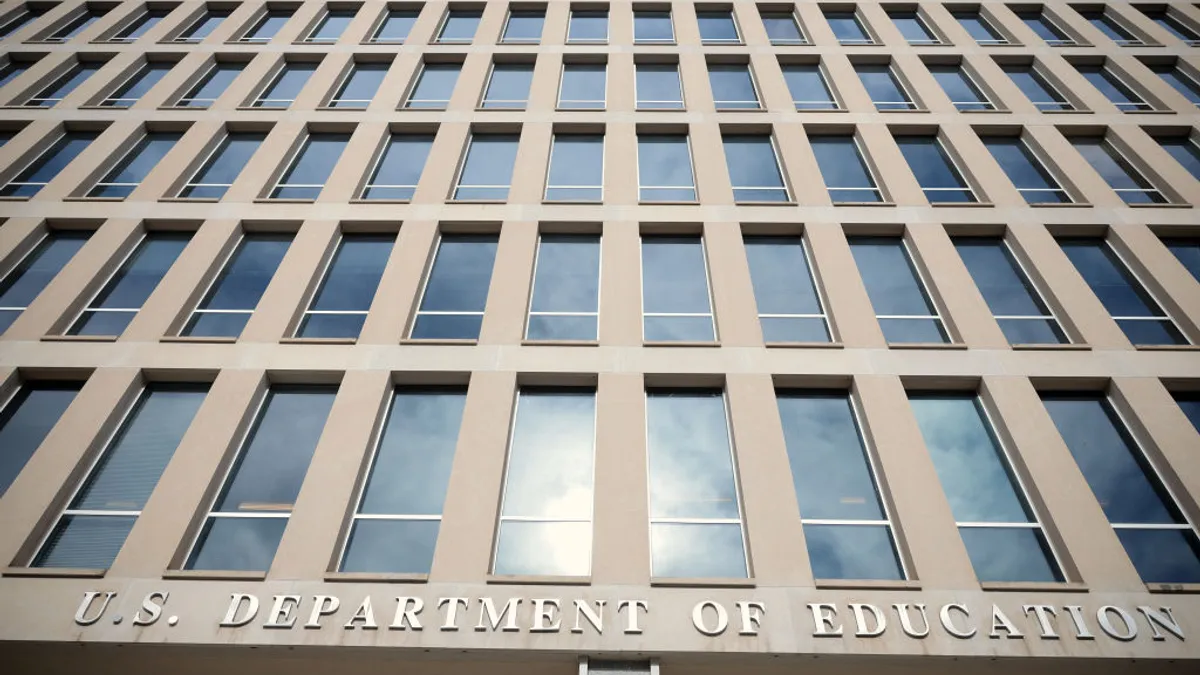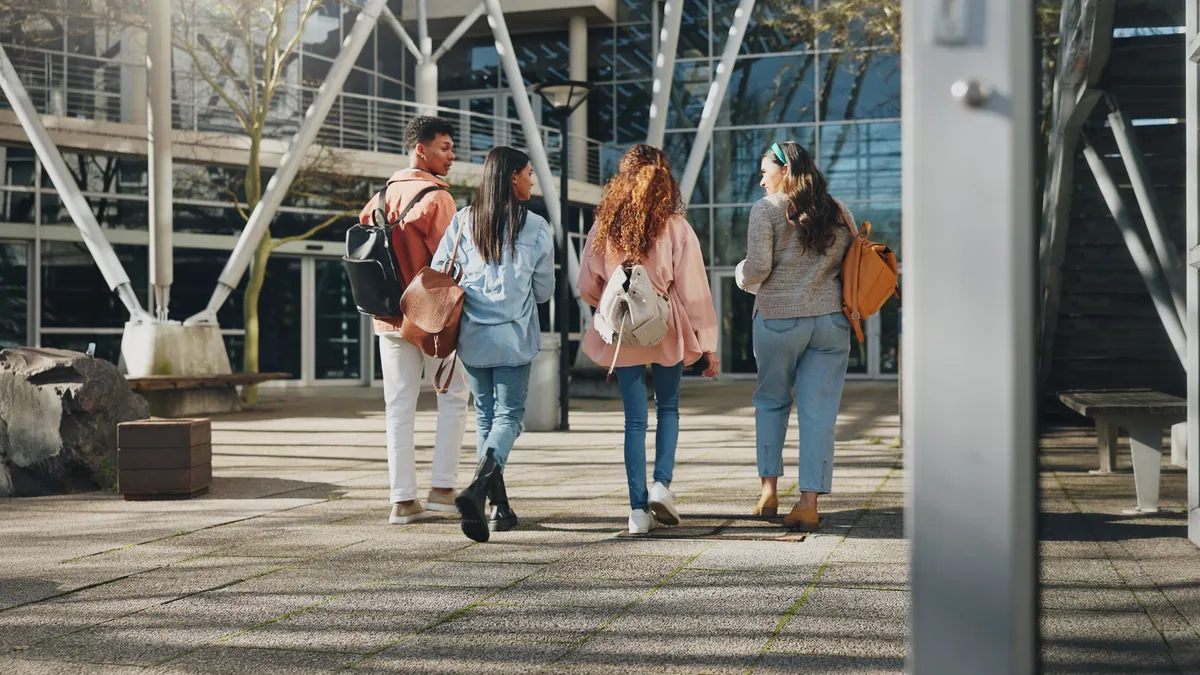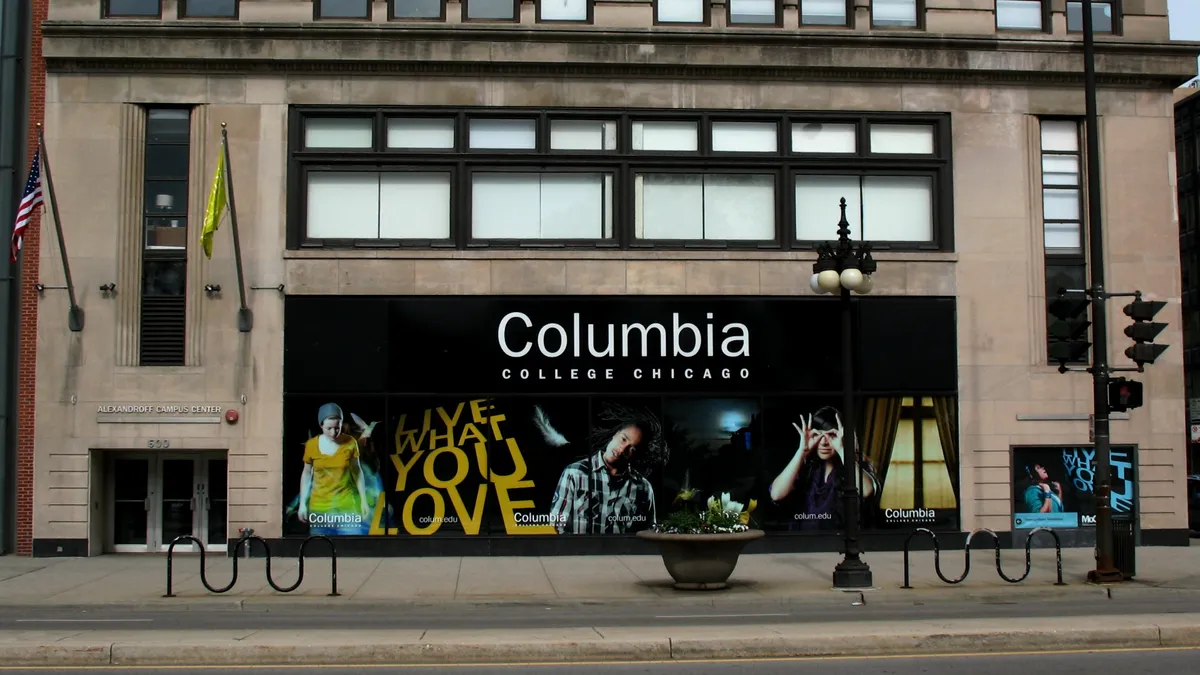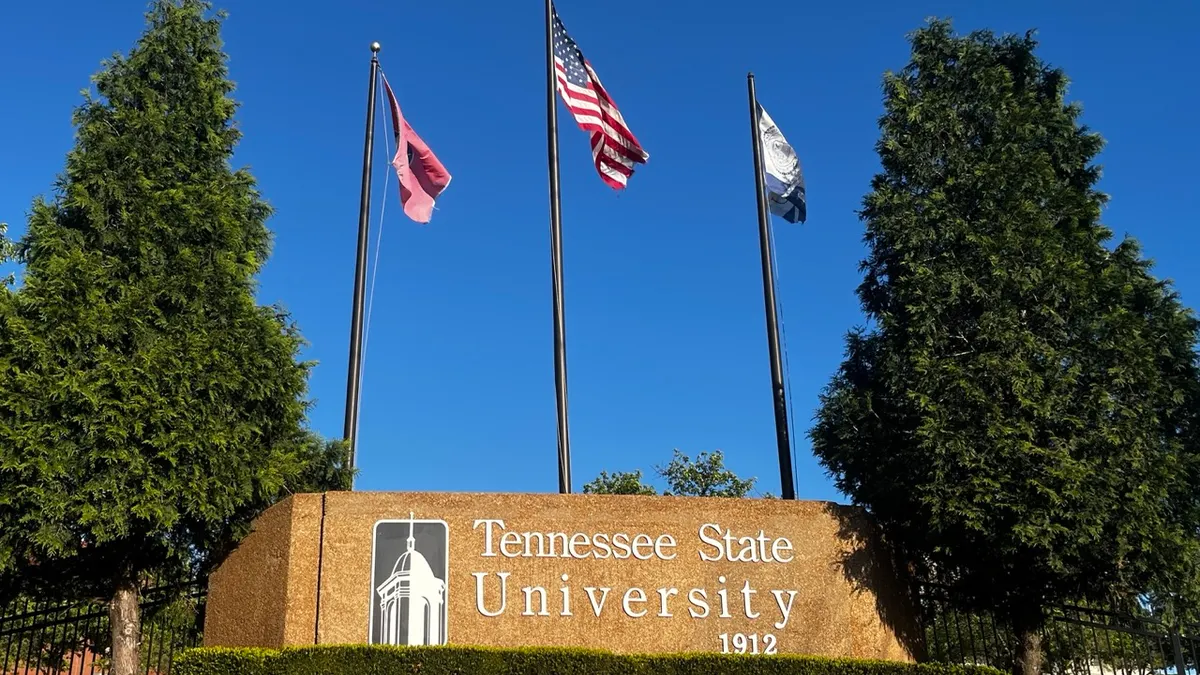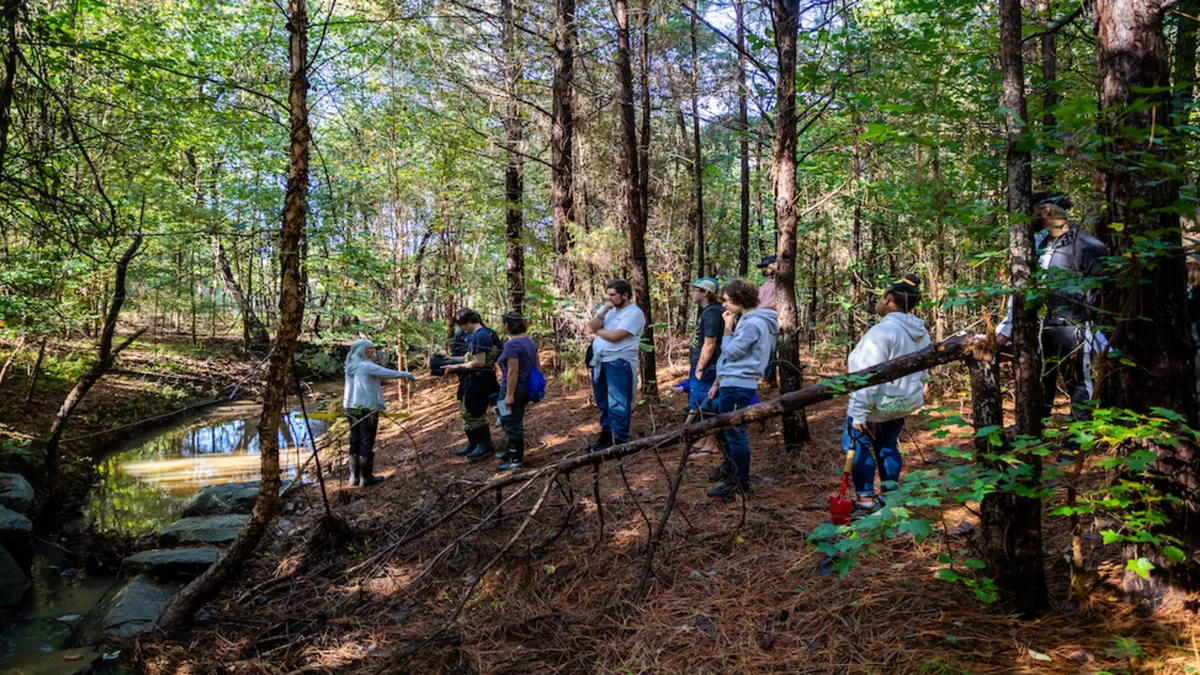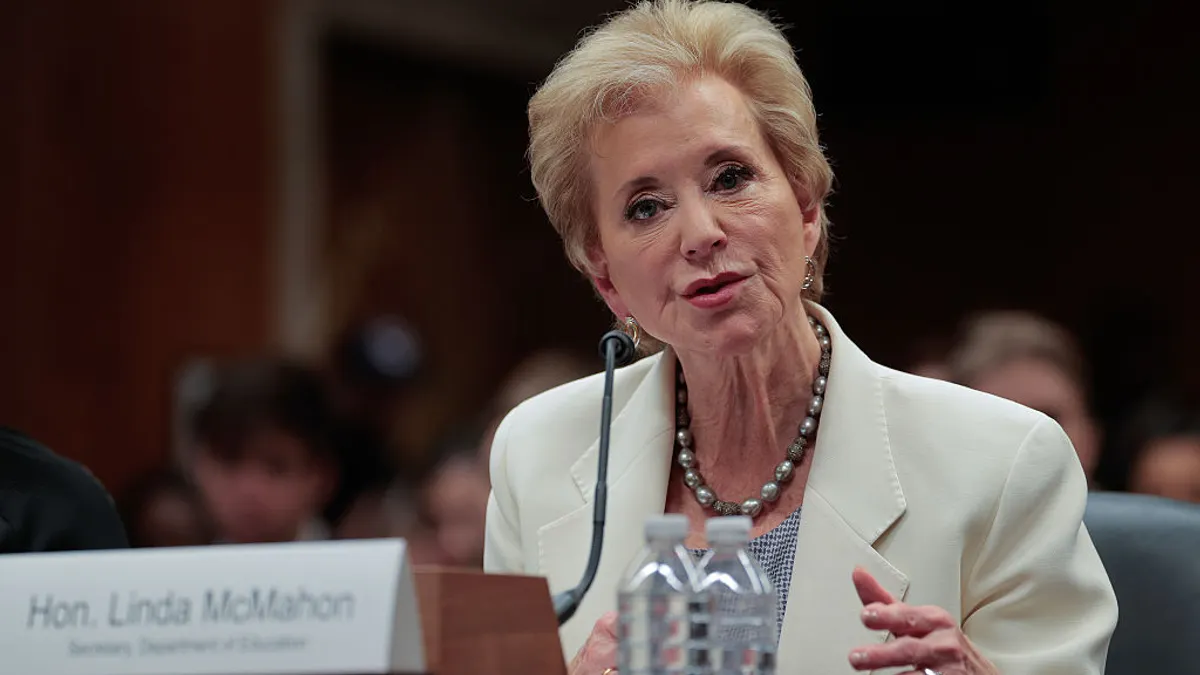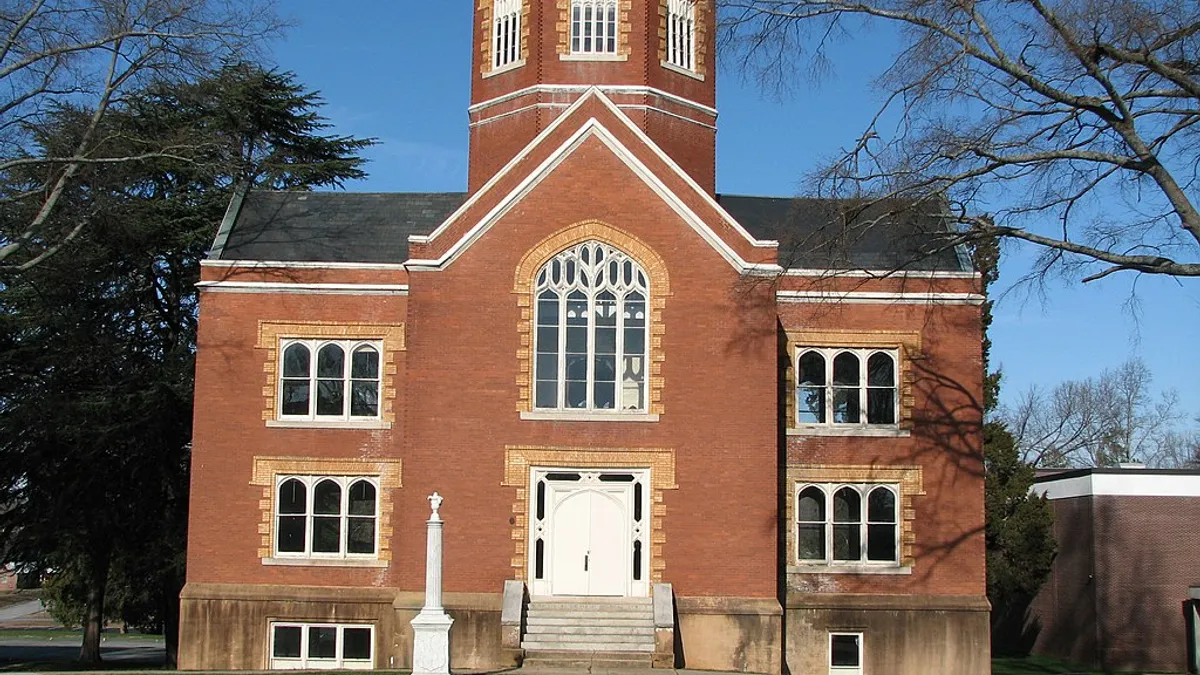To say the pandemic has changed college admissions would be an understatement.
The health crisis upended virtually every part of the process, disrupting typical recruitment tactics. Traditional campus visits were limited, and officials translated large-scale admissions fairs designed to woo students into online formats.
The virus also shut down K-12 schools, making it more challenging for high school students to take the SAT and ACT. Acknowledging this barrier, a significant number of colleges did away with their entrance exam requirements, at least temporarily, striking down one of the longest-standing and most controversial components of admissions.
At the same time, the industry group for admissions professionals, the National Association for College Admission Counseling (NACAC), is undergoing a transformation. A highly watched decision from the U.S. Department of Justice forced it to rework its ethics code, greenlighting colleges to poach students after the traditional deadline to commit to a school. The national movement around racial injustices, too, has laid bare disparities within admissions and enrollment.
The group's new CEO, Angel Pérez, who started July 15, needed to address this firestorm.
Education Dive talked with Pérez about his first month on the job and his plans to chart a new path for NACAC.
Editor's note: This interview has been edited for clarity and brevity.
EDUCATION DIVE: What are the biggest issues you've needed to wrap your arms around one month into your position?
ANGEL PÉREZ: Taking on a new job in the middle of a pandemic and a financial crisis meant dealing with the financial side of NACAC's house was my No. 1 priority. We have not had a college fair since March, which is one of our greatest revenue generators. We're moving our conference online, and we don't know what finances that might bring.
We're also trying to pivot the support services for our members and be really responsive to the public. For example, we created a social media campaign to get people to sign a petition that test-optional really means test-optional. High school counselors all over the country were writing to me and saying: "It's great all these schools are going test-optional, but our students don't believe it because the SAT and the ACT are so deeply embedded in the culture in the U.S. Students are still actually thinking about risking their lives and going into an exam center because they believe they are going to be disadvantaged by not taking the test."
Many schools have gone test-optional, but a lot don't know exactly what that means or how to do it. We pivoted quickly and we're providing a forum for any school that has gone test-optional.
Those are some examples of how we're trying to help our members build the admissions process of the future -- and we've had to move at the speed of light.
Diving into the financial side of things, how well-positioned is NACAC? Associations have suffered during the pandemic, so what sort of creative means are you exploring?
One thing we're doing that we think is going to help create more access is pivoting our college fair online. We weren't sure how colleges and universities were going to respond, but it has sold out.
When we would hold it at a convention center somewhere like New York City, that would be great for New York City kids but not for a kid in rural upstate New York. Now, it's this college-going conference that anyone can attend regardless of where they are.
The other piece, which is something every organization in the world is doing, is cutting costs and seeing what we can put on hold. For example, instead of publishing our journal, we're putting that content online and not spending $100,000 on the publication.
We're also looking toward partnerships. Are there organizations we can partner with that do similar work and have a similar mission, so we can reduce efforts and combine costs? We're also thinking of seeking more foundation support around mission-related issues. If school counselors are having a really hard time delivering college counseling, particularly at large public schools, could we partner with foundations and the corporate sector to provide those services through NACAC?
You mentioned access issues. Those problems predate the pandemic. Why hadn't NACAC explored more flexible options for students before this?
I don't really know the answer to that. It's not that the organization didn't consider issues of access. It's so deeply embedded in the work they had always been doing, but I'm not sure they had been creative. The pandemic pushed us, and now we have a CEO who is looking at things with a fresh set of eyes.
We're an organization in transition. The board hired me because they really wanted to create the NACAC of the future. They want us to be providing different kinds of programs and services, serving a wider audience, and becoming more of a household name. We do a lot of really good work, but not a lot of people know about it, except for the insular groups.
One thing NACAC struggles with is its mission statement. Do we serve students? Do we serve counselors who serve students? A majority of the services we provide, except for the college fair, are not direct student access work. NACAC needs a new mission statement and mission clarity, so if you talk to me six months from now, it's going to be a different organization.
After the changes that came out of the Department of Justice case, what do you view as NACAC's primary role? Is it an enforcement body?
Ethical practices will always be part of what we do. Associations have a responsibility to provide guidelines for their members on how to do good work.
Fifteen or 20 years ago, a lot of people who joined NACAC did so because they felt it would help them -- if they were a chief enrollment officer, for example, to help show their president what they could and could not do. Post-Department of Justice, people felt a bit lost, like, OK, what does NACAC stand for?
People forgot that at the organization's core were four pillars: education, training, advocacy and convening.
The advocacy piece is one leg we need to expand on — not just government relations, but really serving as true advocates for our members, in whatever spaces they need.
We're also doing a lot of work this year around racial reckoning in college admissions and college counseling. There is lots of national conversation happening around this issue, but not in the specifics as it relates to admissions. For me, that's the future of the organization.
We're also one of the few organizations that brings together the secondary side and the higher education side. As I've been going on my meet-and-greets with other CEOs and other organizations, they constantly remind me, one of the reasons we want to partner with you is because you have access to both sides of the postsecondary pipeline equation.
The Justice Department thing moved us in a different direction, but it also sort of galvanized us to say, these are the areas we're really going to focus on.
How has the racial justice movement affected admissions work?
It has already started to trickle down. I have received so many emails from enrollment officers asking who I might know who could provide anti-bias training, implicit bias training.
Students are asking very different kinds of questions, too. All of a sudden, they are paying very close attention to how colleges and universities are responding to this moment in history.
Current high school students are trying to learn about the experience of students of color on campuses and how colleges and universities are responding.
On the higher ed side, the kinds of questions students are asking are already starting to change and they're holding admissions officers more accountable.
How well do admissions officers understand these issues?
I can't tell you how many of my colleagues have said, "I have very good intentions, but I don't know how to lead these conversations. No one has ever trained me."
All of sudden, they are leading the conversation because they happen to be the vice president of enrollment. What's happening in society is that everyone is so afraid to speak their truth or even ask questions because of this "cancel culture." They feel that if they say the slightest wrong thing, they are going to be canceled.
It's really sad because it is inhibiting what could be some really good conversations. I've had several members who said to me, "I will not speak publicly around these issues because I just feel like even if I have good intentions, I'm just going to be attacked and potentially lose my job."
What are your thoughts on the recent news that the federal government was going after Yale for allegedly discriminating against White and Asian students?
The fact that the Department of Justice would go after Yale around this particular issue in this particular moment in our history is truly a move in the wrong direction — when the gaps in the pipeline to higher education are widening for disadvantaged students, low-income students and students of color.
And Yale, like so many of our members at NACAC, practices holistic admissions and a student's race is part of that story. Yale has put its own statements out there, saying it will still consider race in admissions.
The department was not pleased with the Harvard decision, so they're going after another high-profile school. We haven't met the goals of affirmative action because we're not an equal society. This is a political stunt before the November election.
What do you think admissions practices are going to look like going forward? Enrollment professionals thought there would be more aggressive tactics after NACAC's ethics code changed. Have we seen any of those?
That's all we talked about last year and right up until March. The prediction was summer melt was going to be so difficult that colleges were going to be engaging in all this predatory recruitment. The reality is that with COVID, everyone was so focused on making their classes this year that all of that went out the window.
Who knows where the future lies, because some of the issues we were talking about pre-pandemic are still there. We still have a demographic cliff in 2026. The price of higher education hasn't gone down dramatically. When the world opens back up, we'll be talking about those issues again.
I'm surprised the pandemic didn't result in some of those aggressive tactics, because as you said, colleges were more desperate to meet their enrollment.
A lot of schools, even midsummer, were saying they were surprised at the number of students they kept. But as we move into August, those numbers are changing. Many international students can't get to us. Some of the issues enrollment officers thought would happen have happened. Colleges and universities really won't know their enrollment numbers until the first day of classes.






